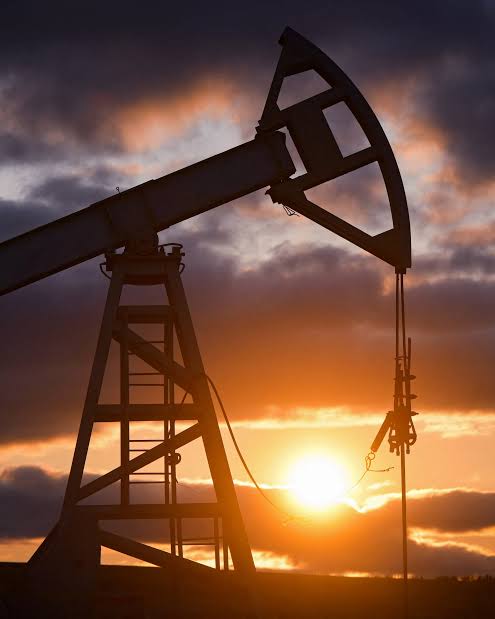The recent global dip in crude oil prices has placed Nigeria’s 2025 budget at risk, with fuel marketers forecasting a potential reduction in petroleum product prices.
Experts argue that while the crude oil price drop, triggered by tariffs imposed by U.S. President Donald Trump, presents both challenges and opportunities for Nigeria’s economy, it is proving a double-edged sword. On one hand, the Nigerian government faces a revenue shortfall due to falling oil prices, but on the other, citizens could benefit from lower fuel prices.
Crude oil prices began their decline over the weekend, reaching $65 per barrel by Saturday. By Monday, prices further dropped, with Brent crude standing at $64.16 and U.S. WTI at $60.73.
Oilprice.com reports that a combination of Trump’s tariffs, OPEC+’s decision to cut production more quickly, and China’s retaliatory actions have caused a $10 per barrel decrease in global oil prices, marking the first time since August 2021 that ICE Brent has fallen below $65 per barrel.
China, the world’s largest oil importer, is set to impose additional tariffs of 34% on U.S. goods starting April 10, escalating the ongoing trade war, which has raised concerns about a potential global recession. Meanwhile, OPEC+’s plan to increase output by 411,000 barrels per day in May has further pressured prices.
As crude oil prices continue to fall, Nigeria’s government faces the challenge of covering the potential budget deficit. Originally, the government had projected oil prices at $75 per barrel, with oil revenues expected to contribute 56% of the total N34.8 trillion revenue target.
With prices now $10 below the $75 per barrel benchmark, the target appears increasingly out of reach, especially as the government has failed to raise daily oil production to 2 million barrels.
Clement Isong, Executive Secretary of the Major Oil Marketers Association of Nigeria (MEMAN), expressed concern that the crude oil price drop could seriously affect the economy, particularly the government’s budget projections. He pointed out that the current price of $65 per barrel exacerbates the revenue shortfall and could discourage investments in the oil sector.
Isong also highlighted Nigeria’s high production costs, due to offshore oil extraction, noting that low crude prices make it difficult to generate enough revenue to fund the country’s development plans. However, he acknowledged that a drop in crude prices could lead to lower fuel costs for consumers.
Billy Gillis-Harry, National President of the Petroleum Products Retail Outlet Owners Association of Nigeria, also emphasized the mixed impact of the price fall, noting that while Nigeria’s economy is heavily reliant on oil, fuel retailers might see price fluctuations that could eventually stabilize at lower levels.
Energy expert Professor Emeritus Wumi Iledare agreed that the price drop would negatively affect government revenues in the short term but pointed out that lower fuel prices could boost economic activity, particularly by increasing employment in the private sector.
Professor Dayo Ayoade of the University of Lagos attributed the crude price decline primarily to global market instability and cautioned that Nigeria’s over-reliance on oil revenue makes the country vulnerable to further economic challenges, including the need to borrow to cover the budget deficit.
With ongoing tensions between the U.S. and China, Nigeria faces additional economic pressures. Minister of Industry, Trade, and Investment Jumoke Oduwole has warned that the tariffs imposed by Trump could disrupt Nigeria’s trade with the U.S., affecting both oil and non-oil sectors.
As crude prices continue to fluctuate, experts recommend that Nigeria explore alternative revenue sources and bolster its internal economy to reduce dependency on oil.

